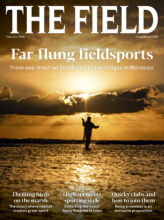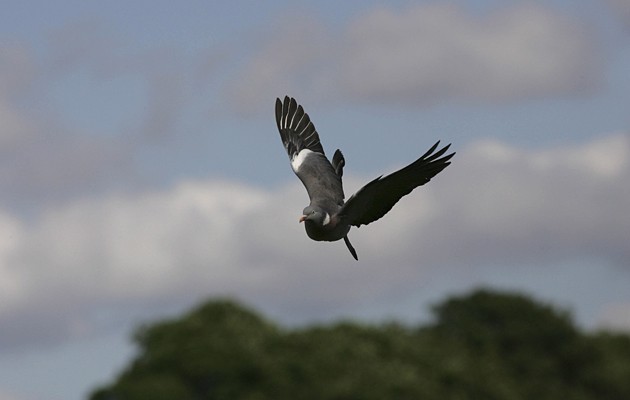Morton Jack concludes his tour of the UK with pigeon shooting in Suffolk. Here he considers the future of pigeon shooting in the UK, and what we must to do to preserve it in the British countryside
Pigeon shooting in Suffolk is Morton Jack’s final stop on his tour of the UK. To conclude his tour, he ponders the unfailing merits of pigeon shooting, even when the bag is smaller than expected.
To read about the rest of Morton Jack’s pigeon shooting tour of the UK, reading pigeon shooting in the UK.
PIGEON SHOOTING IN SUFFOLK
One early autumn evening I found myself in unfamiliar countryside which didn’t have any hills or ditches but instead was made up of hedges and vast fields of stubble. I was in Suffolk and it was dark. I was definitely lost for my day pigeon shooting in Suffolk.
After a number of stops and phone calls however, despite the fact that I was late and my hosts were tired, I found myself enjoying an unexpected banquet of roast pork in a splendid Suffolk farmhouse. This rather neatly illustrates the approach that Nick and Lily Elsdon take to their business, Anglia Sporting. They aim to combine good shooting (Nick’s department) and excellent hospitality (Lily’s) in one package and have succeeded to the extent that they have to concentrate full-time on what is now a flourishing business.
“We offer shooting over ferrets, stalking, duck-shooting, pigeon shooting in Suffolk over many thousands of acres and now see so many people each year we’ve lost count but our emailing list is now around 700 people,” Nick explained. He went on to say that 70 per cent of his customers came from France, Italy, America, Malta and Holland, “but the biggest group, and possibly the most travelled of sportsmen in the world, is the Danish”.
Nick was born and bred in Surrey and hated school, so he left at 16 for a lifetime of self-employment, starting with an antiques business. Lily, a country girl, was born in Norfolk and went to school in East Anglia and has run pubs, clubs and old people’s homes in and around East Anglia all her life. They met six years ago and got married in June 2007.
After a good night’s sleep and a substantial breakfast, I was introduced to Glen, a fellow guest, and we were driven to our hides in some stubble fields on what was a windless sunny day for pigeon shooting in Suffolk. I watched Nick carefully test the air with talcum powder and methodically assemble a varied collection of decoys, magnet and an extraordinary telescopic lofting pole that put the awful contraption that I use to shame. He took a great deal of time to get the pattern right and I learnt a lot just watching him.
Unfortunately, a listless wind and a plentiful supply of food did us no favours, and the four of us who were pigeon shooting in Suffolk that day failed to gather much of a bag despite the valiant efforts of our host who charged about in his Nissan (he moved me twice) doing the best he could to find some birds for us. I had a little more luck by a dead tree later on in the day and ended up with a total bag of a dozen or so. But that’s pigeon-shooting. I remember my father telling me “You can’t just turn on nature like a tap.”
Nick and Lily had been great hosts while I was pigeon shooting in Suffolk. They have built a successful business in a very short time and are now trying to consolidate it. As Lily put it, “We don’t want to lose our passion for this business. Nick loves to shoot and I love to cook. We want it to stay that way.”
The long journey back to the West-country gave me time to think, and despite the bags from the day pigeon shooting in Suffolk being smaller than anticipated I realised that shooting pigeon is always hugely enjoyable.
Money changes everything. It seems that pigeon shooting is becoming increasingly popular and more of the best land is being snapped up by guides with wealthy clients, often foreign. The growing competition for shooting rights will inflate costs and I fear that this will make pigeon shooting less accessible to ordinary people in rural areas of what is now the most crowded country in Europe.
Perhaps the best way to counter this trend and preserve the sport is for the ordinary pigeon shooter to join existing (and create new) local shooting clubs which have the collective will and financial strength to secure the future of their members’ shooting.
One thing’s for sure, a “do nothing” response will result in pigeon shooting ceasing to be the preserve of ordinary country people who live in and love the British countryside for what it is – a place to be, not just see.





